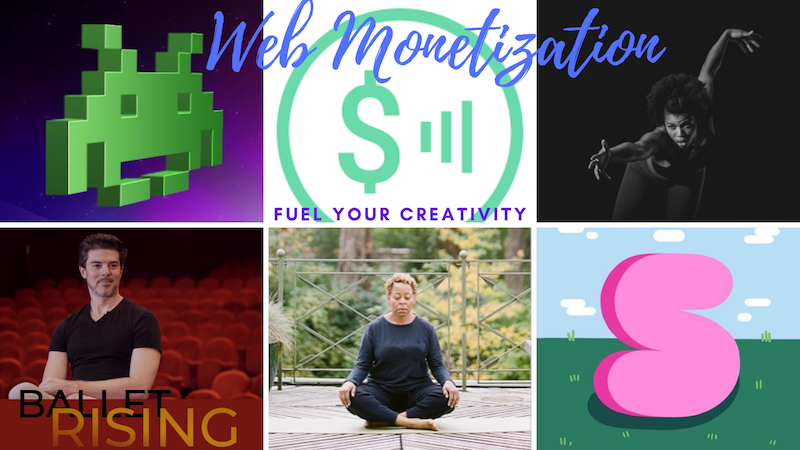The past year, I have been fortunate enough to partake in a new mobile / digital cultural movement that is emerging in an endeavour to make the digital sphere a more equitable place for content creators with a focus on empowering underserved communities. The movement I speak of is that of Web Monetization. And no, this is not affiliate marketing and ads that grow the corporate beasts, but something new and different, designed for independent artists, journalists, entrepreneurs, and open educators, from the technology of Interledger and fostered by Coil, Mozilla, and Creative Commons, through Grant for the Web.
In essence what this is, is enabling the streaming of micropayments to digital content from the people consuming it. Currently this is done via a subscription model through Coil. While on the surface this is about earning from your content, at a community level it is about fostering equity in the digital sphere.
I am speaking at OE Global 2021 next week about the potential of Web Monetization as a solution for sustainably funding open education (or at least the maintenance of it). Here’s a sneak peek of that talk that I recorded yesterday:
For those of you that wish to learn more about Web Monetization, start Web Monetizing your work, and to immerse yourself in the Web Monetization ecosystem, I’ve been creating a number of resources to help people do that:
- Web Monetization Course
- Web Monetization Guide
- Web Monetization Resource Library
- Web Monetized Content Library
Many people within this movement are also involved in finding similar solutions utilising micropayments, like NFTs. A little on that from Amber Case:

The internet and mobility has put content at our fingertips, but unfortunately few people embrace that this content was create by someone. I often see students and other members of the public who use content (videos, music, artwork) without citing the content’s originator. Google has a decent search tool that includes user rights. It isn’t a perfect system, but it is relatively accurate in recognizing whether or not particular content can be used with or without attribution, and for commercial or non-commercial requirements.
There are many websites that offer Creative Commons licenses content (although few people realize there are multi-levels of these licenses) and attribution-free content but one needs to know where to look.
Alternatively, you can find platforms like the ones Erica references in her submission. Here are some platforms that I am familiar with that connect users with designers is – https://www.fiverr.com/ | https://envato.com | https://www.pond5.com | https://pixabay.com/
Can we get a sneak-peak of your talk? How can Web Monetization be a solution for sustainably funding open education (or at least the maintenance of it)?
What I am referencing isn’t a website, Sam. It is a new API Standard for the flow of micropayments on the web between Web Monetization subscribers and the digital content that they view that is Web Monetized. I shared talk on it above, which explains how this works and how it presents a solution for sustainably funding open education. You can also engage further in the conversation on, via OEG Connect: https://connect.oeglobal.org/t/sustainable-funding-solutions-in-open-education-with-the-web-monetization-standard/2217/8